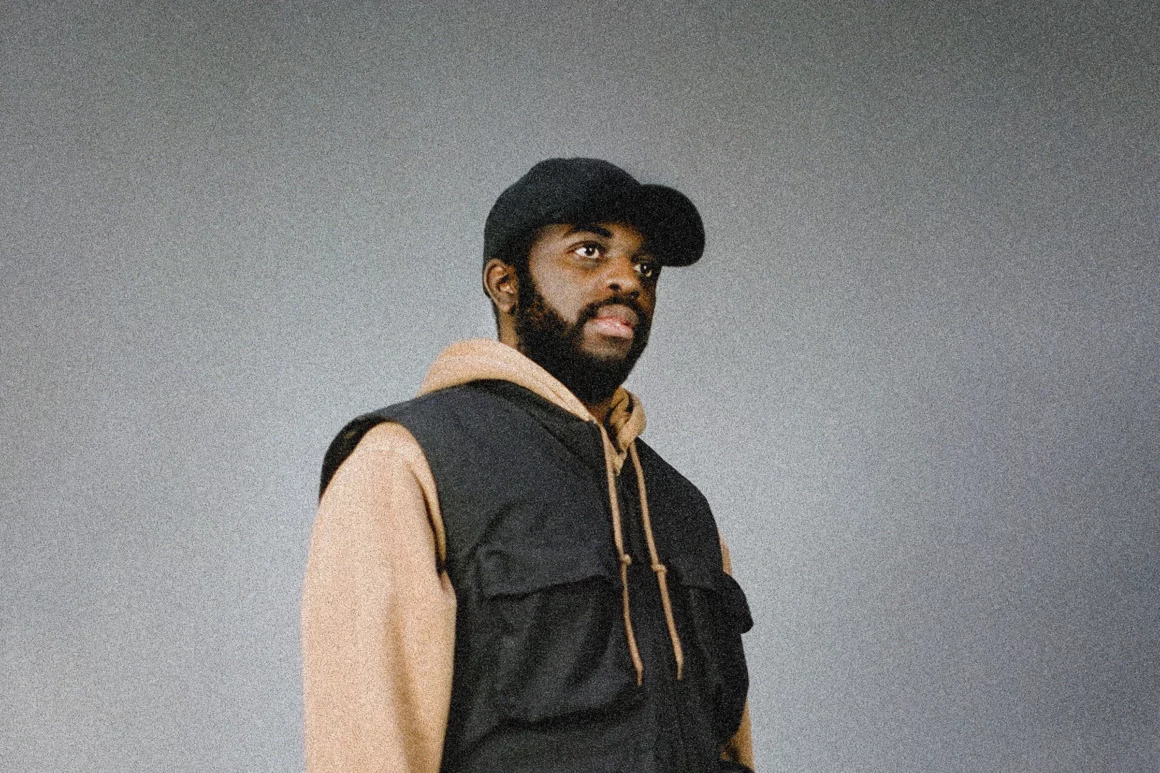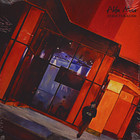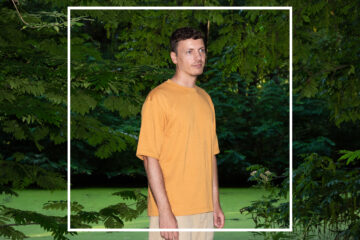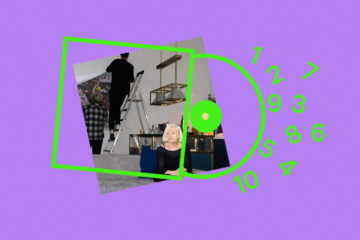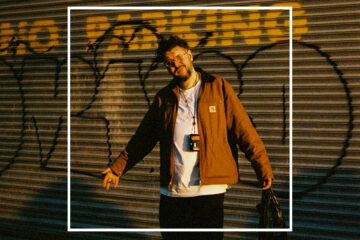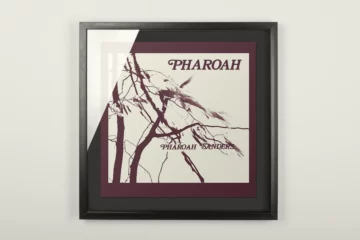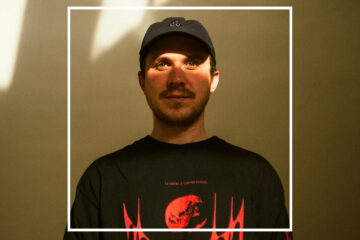Alfa Mist is often put into the jazz category. But it’s not that easy, as his current album Variables proves. Big band jazz numbers join hip hop interludes, soul tracks and also folk elements. However, this musical bouquet does not come from just anywhere. The Londoner had his first contact with music in grime. Already as a teenager he produced beats. With growing curiosity, Alfa Mist explored different production methods and arrived at jazz through sampling. With a newly opened auditory world in mind, he thought himself to play the piano.
Already rooted in several genres, Alfa Mist likes to venture into new territory with its five LPs to date. With a calm and cozy atmosphere, his compositions offer space for relaxed hip hop sounds as well as jazzy excesses. Never quite true to form to pass as flawless jazz, and yet too multifaceted for easy listening. In the interview, Alfa Mist talks about the question that accompanied him in the production process of variables and how his working rhythm has changed over the years.
The ten songs on »Variables« sound quite eclectic in terms of sound and genre. What would you say is the glue that holds it all together?
Alfa Mist: Maybe the mood of the songs is similar. I like quite emotional harmonies. The idea of the album is to do ten different possibilities that could all be an album direction. That is why the album is called »Variables« because they are all different aspects of myself. I could have made an album out of each of them individually. But I think the emotional harmony holds it together.
Are you talking about one specific emotion?
Not a specific emotion just some sort of emotion. I am really into film soundtracks and seeing a lot of films earlier in my life I saw the way music affected the mood or the tone of a scene. You could have happy music when something bad is going on or you could have sad music when something happy is going on. The music can dictate what the director wants to show in a scene, and I treat my music like that as well.
»So, I have studied music I just didn’t have a teacher.«
Alfa Mist
Are there certain soundtracks or albums that influenced Variables?
I do like soundtracks but when I go into making an album, I don’t like to have a specific song or album in mind because then you end up just making your version of that stuff that you’ve heard. I’m constantly listening to music, so the influences are always there.
Do you have an example?
For example, »Forward«, the first track, is probably the closest thing to traditional jazz that I have ever done even though if you would ask any jazz masters, they’ll say no. But to me that’s probably the most traditional jazz thing I’ve ever made like including a straight walking double bass. So, it is inspired by all the jazz greats I’ve listened to over the years, but it is not like I sat down and thought I’m going to make a Miles Davis track. So no album in particular because I try to avoid that because otherwise you get influenced and it may not be you that is coming out. It may be your love for this album that is coming out which is okay if you’re making a tribute but not if you’re trying to make an album for yourself.
Where do you source your ideas from?
I guess it’s just life. If I grow as a person that kind of goes into the music. My albums are normally conceptual. They are based on questions. With Variables it is about infinite possibilities. I was talking with one of my friends about people we went to school with and how everyone had the exact same upbringing but turned out completely differently. It is crazy when people grew up in the exact same situations and life pans out completely differently for them. So that kind of question is what I think about when I make music. It’s not about making something sound more like hip hop, but I ask myself what the idea behind it is. Variables as a concept was all that I had in my mind when I was making the music. And then musically I get inspired by constantly listening to music. That would come out anyway. As long as I am directing it with the ideas it is the ideas that drive it instead of a musical theme. It is more the concept than anything else.
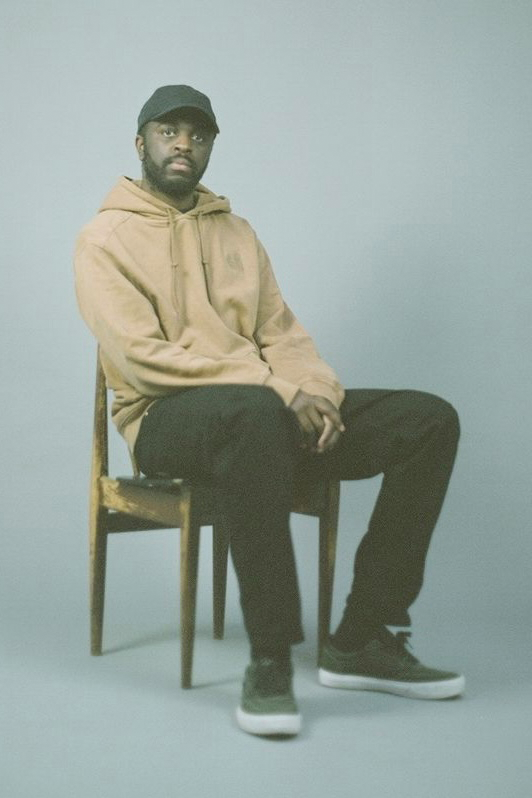
So I can imagine »Variables« as the many different possibilities you have within you?
Exactly, conceptually it is about how are we all here. There are all different decisions that we have all made in our lives that mean that you’re sitting here in this chair talking to me and I’m sitting here. We made different decisions in our life that if we made one decision differently, we may not be specifically here today. Maybe we’d be at another hotel or maybe I’ll be in London still not doing what I do now. That is the concept and then musically these are ten different variables in terms of the different albums that I could have made. There are two ideas, musically and conceptually.
»I can’t help but write melody and emotional stuff but the whole energy aspect I wanted to bring back as well.«
Alfa Mist
You started out producing grime beats and then turned more to jazz. Does this still translate musically into your work on this album?
To some beats I made I wanted to nod my head basically. I just wanted to make a beat that had energy within no matter what the harmony was. When I learned piano, it was all about melody and harmony – things that moved me emotionally. I can’t help but write melody and emotional stuff but the whole energy aspect I wanted to bring back as well. I wanted to nod my head when I made the music which is how I felt when I was maybe fourteen or fifteen. That’s just the approach I went with whether that translates through to variables or not.
Since then, what is the main aspect of change in how you’re producing music nowadays?The main thing that changed was that I used to make it completely by myself. I never used to play with other people. I could never really afford to go into a studio with a band. I was in my bedroom making hip hop beats. Music comes out differently when other peoples’ opinions and influences get involved. Then, you come out with something different that you probably couldn’t have done solely by yourself and only the people in the room could have made. If you change this bassist with a different bassist, the whole song would have been completely different. I think maybe that has changed. It’s just going from making beats only. Now making Beats is only the first stage whereas before it was the final stage.
And now when you work with different people, how do you know when a song is done?When we record in a studio and say we only have ten minutes, then whatever happens in this moment is captured. If you want to make it better, we can try and make it better but then sometimes I just stop and say that’s the one and then it is done. You kind of hear in the moment. If there are two or three moments I like in the song then it is worth it even if the rest was mistakes. For those two or three moments it is worth keeping the song. And some people I play with might not like that way of doing things, but I think it is worth having those moments out than making the perfect song with no mistakes but then no moments. You kind of wait for these moments. I don’t know how to describe the moments, but you just feel it when it happens.
You are self-taught and not classically trained as a musician. On Variables you have some tracks with a lot of instrumentation. How do you compose for the group of musicians that play with you?
I’m not classically trained but I learned how to play the piano teaching myself using YouTube tutorials. I can write music I just don’t write notation down. I was a producer first, so I know how to make beats. What I do is I make all the tracks in Midi-Form using Logic or something like that. I play in all the parts individually and sent it to whoever needs to learn it. So, I have studied music I just didn’t have a teacher. It was through hip hop music and coming across jazz music. I thought I need to learn what this music is doing because I didn’t know. Actually, I did have human beings teach me, but they were on a computer screen on YouTube.
In the history of jazz there are a lot of very good, traditionally trained musicians. Your approach stands out in that way. What advantage does your way of learning music give you?
I think it makes me myself. When you’re in a class you are taught the basics of everything. You have to learn everything and be well rounded in all aspects. I just went to choose the things I liked so I only learned what I wanted to learn whereas I would be refused to do that if I was in a class. I don’t really have a good foundation because I just went for things that I liked. No matter how easy it was or hard it was I learned songs that my hands couldn’t play before. It means no matter how difficult or hard, the point is that I have to like it and I have to want to do it. But that just made me who I am. It doesn’t make me better than anyone, but it makes me specifically me. I think that’s what maybe everyone needs to strive to do. To be themselves, not to be better than people but just to be better than you who you were yesterday. I think that helps me making my own decisions.

